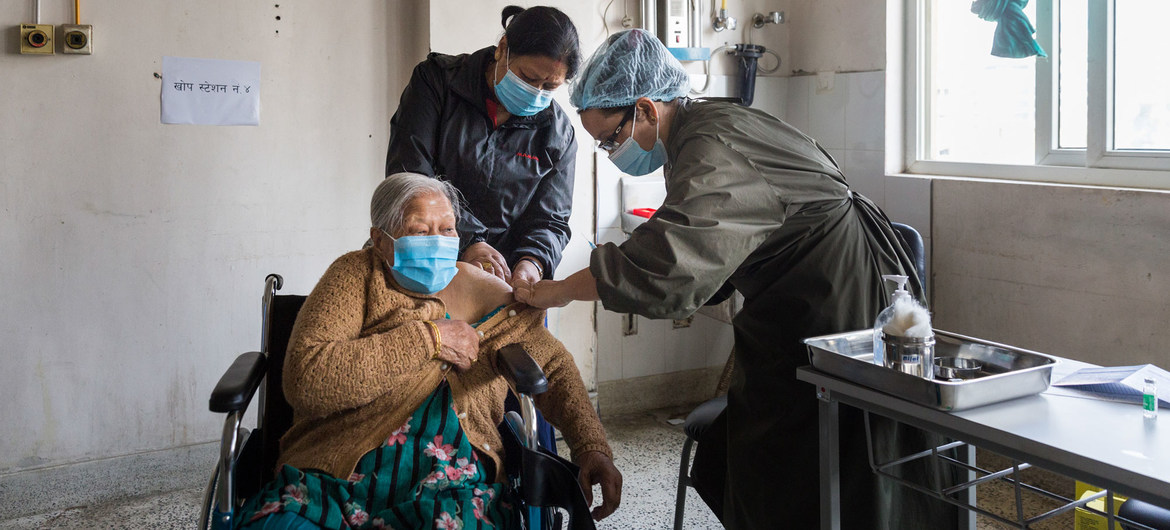Tedros calls for new high-level working group to get 40% vaccinated by year’s end
The call was made this Wednesday by WHO Director-General, Tedros Adhanom Ghebreyesus, at a meeting with foreign ministers hosted by the United States.
“Nearly 80 countries, half of them in Africa, will not reach our 40% vaccination target without your help. To reach that target, we need an additional 550 million doses”, Tedros informed.
The WHO chief asked countries which have already reached high coverage rates, to give their place in the queue to COVAX and AVAT, the African Union initiative for vaccine distribution, pointing out that the United States has already led the way with its government supply of Moderna shots.
“And we ask you to fully fund the ACT Accelerator, which needs $23.4 billion over the next 12 months to get vaccines, tests, treatments and PPE to where they are needed most”, he added.
By mid-2022, WHO wants 70% of the population in all countries to be vaccinated.
Two questions
The WHO Director-General said the meeting was about two fundamental questions: How to end the pandemic? And, how to make the world safer?
For Tedros, “ultimately, the pandemic is a crisis of solidarity that has exposed and exacerbated fundamental weaknesses in the global health architecture.”
In that context, he argued, the only way to address those weaknesses is with a binding treaty or agreement between nations.
“Such an agreement would provide the overarching framework to foster greater international cooperation”, he said, adding that it should focus on three key areas.
Key areas
First, better governance, with a heads of State council, anchored in WHO, to provide high-level political leadership for rapid and coordinated action.
“The council could be supported by a ministerial standing committee, which WHO Member States are now working to establish, under the WHO Executive Board”, Tedros explained.
Second, better financing. WHO supports the idea of a financial intermediary fund established at the World Bank to address gaps identified by the agency, and financed by countries and regional organizations.
Thirdly, Tedros said, the world needs a strengthened, empowered and sustainably financed WHO, at the centre of the global health architecture.
“Almost three quarters of a century ago, the nations of the world created WHO to be the leading and coordinating authority on global health. Now, the nations of the world must fulfil that mission and mandate”, he concluded.



